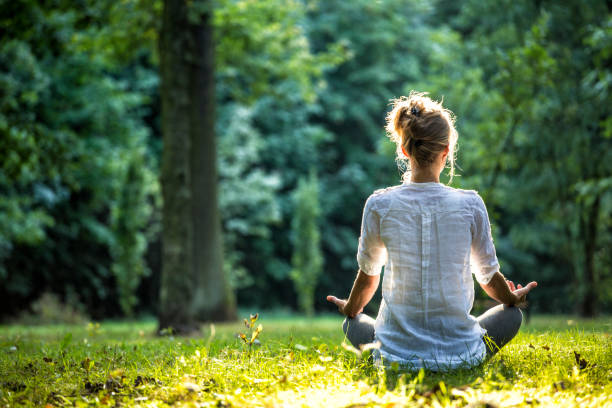There is a radical idea hiding in plain sight. It is quiet, unglamorous, and often met with suspicion. The idea is simply this. Doing nothing is not laziness. It is practice. It is a skill that, when cultivated, repairs focus, fuels creativity, and restores the kind of calm that helps people make better choices. In a world that praises constant motion, the deliberate decision to sit still can feel revolutionary. This piece explains why doing nothing matters and how to make room for it in a busy life without guilt.
Most people think doing nothing is empty time. In fact it is full of invisible work. When you allow your mind to wander without the pressure to produce you give your brain the space it needs to sort through ideas, knit memories together, and form unexpected connections. Scientists call this the default mode of the brain, a state where reflection happens quietly and insights surface naturally. The mind needs these pauses the way muscles need rest between workouts. Without them thinking becomes shallow, decisions become reactive, and stress becomes chronic.
Doing nothing is also a counterweight to modern distraction. Our days are segmented by notifications meetings and a thousand small tasks that demand attention. Those interruptions cost more than time. They break the thread of focus and make it harder to return. Intentionally making time to do nothing trains attention in the opposite direction. It teaches the nervous system that stillness is safe. Over a few weeks people who practice short periods of unstructured time notice they can focus longer when they need to and they bounce back faster from stress.
There is a social benefit to nothingness too. When you are not constantly busy you listen better. Conversations become less performative and more present. You notice the small changes in a friend s voice or in a partner s body language that would otherwise slip by. That attunement deepens relationships because presence is the most persuasive gift you can offer. People do not remember the busiest friend as the kindest; they remember the one who gave them an hour of unhurried attention.
If the idea sounds appealing and also impossible the path forward is gentle. Start with tiny experiments. Give yourself two minutes of nothing at three points in the day. Sit with your feet on the floor and let your breathing slow. Resist the urge to check your phone. Notice five sensory details in the room. No goal. No judgment. Just noticing. Those two minutes are training sessions for a calmer mind. They do not take much time but they build a habit that grows into something larger.
Many people worry they will lose productivity if they pause. The opposite is true for most tasks. After a short break ideas are clearer and problems look smaller. That is because the brain has had a chance to shift from fast reactive thinking to a more reflective mode that sees patterns. Instead of pushing through fatigue try a brief pause and then return with intention. You will find the work is sharper and often faster.
Doing nothing does not mean zoning out into passive scrolling. The key difference is intention. Passive scrolling is a way to fill gaps without nourishing the mind. Doing nothing is deliberate. It is choosing to be with yourself for a moment. You can practice this on a commute, in a waiting room, or before a meeting. Turn the phone face down, let your hands rest on your lap, breathe, and begin to notice what shows up. You might be surprised by the clarity that arrives when you are no longer seeking distraction.
Guilt is the biggest obstacle. People assume they must be earning every minute. That pressure has cultural roots and economic logic behind it, but it is also self defeating. The most productive people I know schedule unstructured time and protect it. They treat it like a meeting with their own brain. When they show up they do not squeeze more tasks into that slot. They allow reflection, daydreaming, and the occasional boredom. Boredom is not a failure. It is a door to curiosity. In that space new ideas often begin.
There is a practical rhythm that helps make nothing time sustainable. Choose a regular slot in the week and mark it with the same seriousness as a work commitment. Start with a single morning every week or ten minutes after lunch three days a week. Call it a pause if that language helps. The point is consistency. When you repeat the practice your nervous system learns what to expect and the quality of stillness deepens. Over months people often report creative breakthroughs or fewer sleepless nights. Those are not miracles. They are the cumulative effects of giving the mind proper rest.
Doing nothing also changes how you face decisions. Instead of reacting to every email or social prompt you develop a small habit of waiting a breathing cycle or two before answering. That brief delay creates room for perspective. It reduces impulsive answers and improves diplomacy. In relationships the same habit is useful. When a tense moment appears try a two minute pause rather than immediate defense. Often the energy behind the conflict cools and a calmer conversation becomes possible.
For people who worry that nothing time is selfish there is another angle to consider. Everyone benefits when we replenish. Parents who steal brief moments to regroup are more patient. Leaders who adopt pauses make better strategic calls. Teachers who allow a few quiet minutes plan lessons that land better. The ripple effects are practical and visible. Retreating into nothingness is not avoidance. It is a recharge that improves how you show up for others.
There are simple rituals that support the practice. Choose a place with minimal noise. Sit facing the light rather than a screen. Use a gentle cue to begin such as a soft bell or three deep breaths. If the mind wanders do not scold yourself. Return your attention to the breath or to a physical sensation like the contact of your feet on the floor. Over time the returns become richer. You start noticing subtle moods shifts and the ideas that would have been drowned by busyness now surface and want to be written down.
If ten minutes feels impossible try micro pauses scattered through the day. Two minutes of nothing between meetings or two minutes before you pick up a phone call accumulates into an hour by the end of a busy day. It is practical presence. It costs almost nothing and refunds calm and clarity each time.
Doing nothing can also be public. Try a short walk with no headphones and no destination. Notice the street, the pattern of roofs, the way light falls on a wall. Moving with no agenda is a form of nothing that loosens tension in the body and invites reflection. Parks are particularly generous places for this practice. Nature amplifies the effects of stillness by giving the senses simple terrain to rest upon.
Measuring the benefit matters because it helps shift the narrative from indulgence to investment. Keep a short log for a month. Record mood before and after a pause, note one idea that arrived, and mark any tasks that felt easier after the practice. The data will show improvement in concentration, mood, and sometimes in problem solving. When you can point to tangible benefits the inner critic that whispers you should be doing more starts to quiet down.
Finally remember that doing nothing at all is a practice that grows with generosity. It will never replace needed action. But it will change the quality of your action. Decisions made from a rested mind are kinder to yourself and to others. Creativity finds its breathing space. Relationships get the presence they deserve. Work becomes sharper because it is driven by clarity rather than anxiety.
Start small. Protect your pause. Notice what changes when you allow yourself to be still. You may discover that the power of doing nothing is precisely the quiet engine that makes the rest of your life run better.









Comments (0)